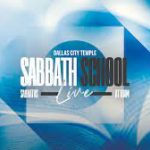KJLH Radio:
Radio Free 102.3 – KJLH is a transmission radio broadcast in Los Angeles, California, United States, giving Adult Contemporary RnB, Rap, and Hip Hop music. KJLH is Los Angeles’ No 1 dark possessed and worked radio broadcast with a melodic custom traversing more than 30 years, connecting the differing populaces of the Greater Los Angeles zone, creating the preeminent in news and public help programming.
About:
KJLH (102.3 FM) is an Urban Adult Contemporary radio broadcast serving the Los Angeles territory. It plays R&B and exemplary soul music under the arrangement, and sometimes plays some Hip-Hop, Gospel and Smooth Jazz tracks. Authorized to the Los Angeles suburb of Compton, California, the station is possessed by Taxi Productions, which thusly is claimed by Stevie Wonder. It works with a compelling emanated intensity of 5.6 kW from a transmitter site in a bit of unincorporated Los Angeles County in View Park-Windsor Hills and works from its studios in Inglewood.
HISTORY:
The 102.3 sign was initially authorized to Long Beach, California with the callsign KFOX-FM comprising of a down-home music design; upon a 1961 deal to the Illinois-California Broadcasting Co., the callsign was changed to KILB.
In 1965, African American finance manager John Lamar Hill, at that point proprietor of the Angelus Funeral Home situated in South Los Angeles, purchased KILB from the past proprietors. It was relaunched as KJLH with a Black radio arrangement comprising of smooth R&B, soul, jazz, and MOR music. Not long after Hill took proprietorship, KJLH’s transmitter was moved from Long Beach to its present area to give better flag inclusion to the developing African American people group in Los Angeles (just as Compton and Inglewood), and the city of the permit was moved to Compton. For quite a long time, the station’s unique studios were situated in the Crenshaw region, only north of present-day Baldwin Hills Crenshaw Plaza shopping center, and nearby to the Angelus Funeral Home on Crenshaw Boulevard, close to 39th Street.
In 1979, following 14 years of proprietorship, Hill offered KJLH to R&B/pop/soul performer Stevie Wonder for more than $2 million; he made a different enterprise, Taxi Productions, for the motivations behind buying and dealing with the station away from his different business issues. Under this difference in possession, Wonder gave KJLH its live trademark to coordinate the call letters: “Generosity, Joy, Love, and Happiness.” It likewise progressed its organization to metropolitan contemporary at that point. Until now, even notwithstanding two distinctive proprietorship stages, KJLH is the most seasoned African American-claimed radio broadcast on the West Coast.
During its initial eight years, KJLH delighted in unobtrusive accomplishment as an R&B/Urban station and had an incredible experience with the African-American people group. In any case, it was hampered by the way that the station was on a Class-A FM signal; it just transmission at 2,250 watts, restricting the sign to the focal and southern segments of Los Angeles County (counting Downtown and South Central Los Angeles), while in different zones like the San Fernando Valley, the sign would either grow dim or be scratchy, contingent upon where the station can be gotten with a solid radio wire. (KJLH got a significant move up to 5,600 watts in 2000.)
From the last part of the 1970s up to the last part of the 1980s, they were one of five R&B/Urban stations in the market that focused the African-American people group, alongside AMs KGFJ and KDAY, and FMs KACE and KUTE. Of the four that have since flipped designs, just the KDAY calls have since been resuscitated, yet on the FM dial, and like KJLH, they additionally have restricted sign inclusion.
In 1986, KJLH would get a far-fetched contender that would give them their first significant blow: KPWR. At the point when that station appeared, Wonder fought back by cutting new imaging and liners with expectations of holding their audience base, however that strategy exploded backward as they saw its crowd heading toward the full-fueled “Force 106”, and could never recuperate.
Its subsequent misfortune would be the 1990 presentation of KKBT, whose advancement to an R&B/soul/Hip-Hop bearing would bring about KJLH going into a more Mainstream Urban course in 1992 under the programing of Frankie Ross (who was ended from the station in late 2003), and renamed the station KJLH Rhythm 102.3, however that strategy exploded backward moreover. KJLH experienced a lot of strife as it battled with helpless evaluations during 1993–95. In November 1995, previous morning athlete Cliff Winston was selected to PD and purchased KJLH into its present metropolitan AC bearing and expanded its playlist with metropolitan smooth jazz hybrids, R&B oldies, current R&B, and gospel hybrids. Moreover, KJLH would grasp the developing neo-soul music sort at that point.
They would get more rivalry in 2001 when KCMG dropped cadenced oldies to become KHHT (presently KRRL). That move would prompt gossipy tidbits that KJLH would flip to all-gospel music design, yet the station chose not to make a configuration change. In 2006, the gossipy tidbits returned indeed, as KKBT dropped their R&B/hip-bounce heading to go grown-up R&B (and a half year later, change their calls to KRBV and receive new marking), giving the market three stations with a similar organization (KRBV is presently Contemporary Christian-arranged.
Radio contact INFO:
Address: 161 N. La Brea Avenue, Inglewood, CA 90301
Phone: (310) 330-220 / (310) 330-2255 Fax
















